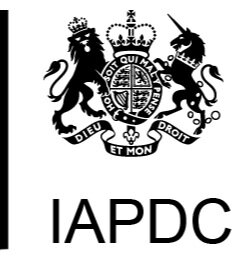King’s Speech a missed opportunity to make real progress on custody deaths
Prisons across the country are on the brink of a safety crisis as prison population numbers continue to rise while more and more staff leave the service. The prison estate is plagued with unacceptably high rates of self-harm, suicide, and premature ‘natural’ deaths. We welcome legislation to introduce a presumption against custodial sentences less than 12 months. Short sentences are damaging and highly disruptive to continuity of care, family life, housing, and work. Key to this is the provision of robust training for probation staff to ensure high-quality pre-sentence reports and the availability of well-resourced community treatment requirements to make sure low-level offenders are diverted from prison.
However, piecemeal measures announced in yesterday’s King’ Speech will not solve the crisis facing our prisons – which is largely rooted in chronic overcrowding, staffing shortfalls, and multiple leadership failures – or keep staff and prisoners safe. The government’s own analysis shows that the average custodial sentence has increased by almost 50% in the last decade, with plans announced to introduce longer sentences for the most serious offences. The IAPDC is clear that prison numbers must not continue to exceed the prison estate’s capacity to deliver a safe, decent, and rehabilitative regime.
Meanwhile, legislation brought forward to hold prisoners overseas risks prisoners’ safety and is indicative of a prison system that is struggling to deliver even the basics. We know that preserving family ties helps to protect against suicide, but it is difficult to see how family visits can be maintained for prisoners abroad. Crucially, all measures must be evaluated for their impact on improving mortality and self-harm rates in prison, which remain consistently high.
Further, it is deeply disappointing that the draft Mental Health Bill appears to have been dropped, with no mention of it in yesterday’s King’s Speech. The IAPDC has been calling for urgent reforms to the Mental Health Act for several years to ensure the lives of individuals with mental health problems are properly safeguarded. The IAPDC was one of many bodies and organisations to provide expert advice to the parliamentary committee established to scrutinise the draft Bill last year. The government’s repeated assurances that it “remains deeply committed to reforming mental health legislation” appear now to be empty words.
While steps taken already taken to reduce the wholly inappropriate use of prison and police custody as a ‘place of safety’ are welcome, legislation is needed to ensure their use is eliminated. Further, as highlighted in the Chief Inspector for Prisons’ annual report, too many prisoners face “protracted” delays for mental health transfers, which the draft Bill was intended to create a time limit for. The King’s Speech was a missed opportunity to drive forward long-awaited reforms to safeguard the lives of individuals under the state’s care.
